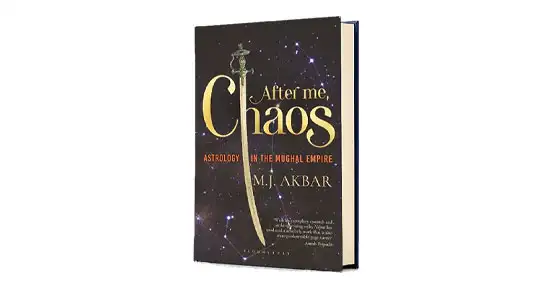AURANGZEB feared that ‘the least deviation from the strict and narrow path of Islamic orthodoxy’ would endanger his soul. He regarded ‘danger as the legitimate risk of greatness’. His debilitating flaw was a passion for micromanagement, robbing governors and generals of initiative and judgement, leaving them hesitant in any emergency. His suspicious nature crushed the latent ability of his sons. He was matchless in diplomacy, intrigue and secret manipulation but a cold intellectual who chilled the love of those who came near him.
Aurangzeb lacked sympathy, imagination, vision, elasticity in the choice of means and that warmth of the heart that atones for a hundred faults of the head. These limitations of his character undermined the Mughal empire, so that after his death it suddenly fell in a single downward plunge. In early February 1707, the eighty-eight-year-old Aurangzeb realised that his life was over. In his last letter to Azam Shah, he wrote: I came alone and am going away alone. I know not who I am and what I have been doing… I have not at all done any [true] government of the realm or cherishing of the peasantry… I brought nothing with me and am carrying away with me the fruits of my own sins. I know not what punishment will fall on me.
A letter to Kam Baksh is soaked in similar despair: ‘I shall carry away with myself the fruits of all the punishments and sins that I have done… Set your feet within the limits of your carpet.’ A statement said to be written in his own hand and left under his pillow, now with the India Office Library in Britain, urges his sons not to slaughter mankind in pursuit of the throne but to share power. He proposed a formula. This being the Mughal dynasty, the sons ignored his advice.
His eleventh commandment was precise: never trust your sons, nor play favourites. Aurangzeb summoned his heir, Bahadur Shah, in prison from 21 February 1687, for an audience after he was released on 9 May 1695. He justified his long years in confinement.
They had been as salutary as prison had been to Prophet Joseph before he became ruler of Egypt: ‘In this hope I have in my lifetime entrusted to you Paradise-like Hindustan.’ Aurangzeb then revealed a startling fact to his son: every prediction made in his horoscope drawn by Fazil Khan ‘from the day of my birth’ had been ‘verified by actual experience’. The horoscope was completely accurate. More: the horoscope had also forecast what would happen ‘after my death’. There would be chaos after he was gone. Az mast hamah fasad-i-baqi!
Aurangzeb then revealed a startling fact to his son: every prediction made in his horoscope drawn by Fazil Khan ‘from the day of my birth’ had been ‘verified by actual experience’. The horoscope was completely accurate. More: the horoscope had also forecast what would happen ‘after my death’.
Aurangzeb was brutally honest about the impending misfortune: In that horoscope it is written that after me will come an emperor, ignorant, narrow-minded, overpowered by injuries, whose words will be all imperfect and whose plans will be immature. He will act towards some men with so much prodigality as almost to drown them, and towards others with so much rigour as to raise the fear of destruction. All these admirable qualities and praiseworthy characteristics are found in your nature! Although I shall leave behind me a competent vazir [Asad Khan] who has come to the front in my reign and whom I have secured, yet what good will it do, as the four pillars of empire, my four sons, will never leave that poor man to do his work?
Many officials were secretly begging for his death now, he said, but once he was gone, they would be pleading before God for death to themselves. He advised Bahadur Shah ‘out of fatherly love’ not to be so salty that his subjects would spit him out of their mouths, nor so sweet that they would swallow him.

































